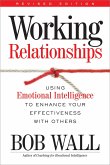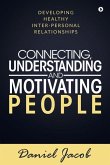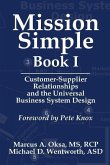A truly impressive book! Its accessible and easy manner belies its sophistication, resting as it does on a rich foundation of serious scholarship skilfully distilled from linguistics, psychology, sociology and more. I was expecting to read the book from an academic perspective, but I kept finding myself making mental notes on how to deal with my own workplace problems, both as an employee and as a manager - where was this book when I first had to run a department! Professor Jonathan Culpeper, Head of Department of Linguistics and English Language, Lancaster University Overview Effective relationship management at work is crucial for business success - it affects employee performance and wellbeing, as well as the recruitment and retention of talent. Yet relationship management is demanding to handle well. Professionals face a large number of challenges in the workplace that are relationship-related, ranging from upsetting or annoying incidents, to loneliness and exclusion, problems of criticism and opposition, and unhealthy cultural atmospheres with inadequate psychological safety. This book provides a powerful set of tools and concepts for leaders, managers, and employees of all levels to deal with relationship challenges at work with greater success. It does not offer simplistic tips or easy fixes. Rather, it helps people address the challenges for themselves - to 'read' the context so that they can identify the factors giving rise to the people problems or risks they are facing. Then they will be able to select the most suitable strategies for overcoming the challenges. Part 1 introduces the issues at stake and the main factors affecting rapport at work. Part 2 deals with key relationship challenges at work (e.g. discord and disagreement, exclusion, uncooperative colleagues, difficult bosses, problematic employees) and presents a suite of tools for addressing them. The tools are all underpinned by an empirically robust conceptual framework - the TRIPS rapport management framework. Part 3 explains the TRIPS conceptual framework in more detail, drawing particularly on psychological and pragmatic theories and findings on relationship management. TRIPS is an acronym for the key factors that need to be taken into account when managing rapport: the Triggers (6 key things people value in working relationships) that give rise to rapport Reactions (e.g. annoyance, upset) if not handled well during the Interactions (what is said and done), all of which are influenced by the People involved and by their situational contexts, Settings. Part 4 provides templates for the tools, TRIPS concepts and strategies that readers can use and apply in their own contexts. Authentic case studies are used throughout the book and are complemented by a range of activities. Who this book is for * Professionals wanting to improve their own relationship building capabilities * Learning and Development and HR practitioners who want to develop collaborative, inclusive workplaces by helping leaders and colleagues with their relationship building skills * Consultants who provide support in this area and would like a clear and robust framework for designing their development initiatives, along with case study examples and follow-up activities; * Students and scholars in the fields of pragmatics, politeness and rapport theory, and positive communication who would value the latest conceptual thinking in the field and handy access to key concepts.
Hinweis: Dieser Artikel kann nur an eine deutsche Lieferadresse ausgeliefert werden.
Hinweis: Dieser Artikel kann nur an eine deutsche Lieferadresse ausgeliefert werden.








